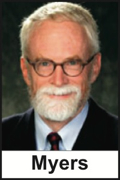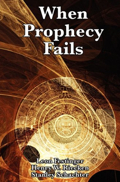Rascals case in brief
In the beginning, in 1989, more than 90 children at the Little Rascals Day Care Center in Edenton, North Carolina, accused a total of 20 adults with 429 instances of sexual abuse over a three-year period. It may have all begun with one parent’s complaint about punishment given her child.
Among the alleged perpetrators: the sheriff and mayor. But prosecutors would charge only Robin Byrum, Darlene Harris, Elizabeth “Betsy” Kelly, Robert “Bob” Kelly, Willard Scott Privott, Shelley Stone and Dawn Wilson – the Edenton 7.
Along with sodomy and beatings, allegations included a baby killed with a handgun, a child being hung upside down from a tree and being set on fire and countless other fantastic incidents involving spaceships, hot air balloons, pirate ships and trained sharks.
By the time prosecutors dropped the last charges in 1997, Little Rascals had become North Carolina’s longest and most costly criminal trial. Prosecutors kept defendants jailed in hopes at least one would turn against their supposed co-conspirators. Remarkably, none did. Another shameful record: Five defendants had to wait longer to face their accusers in court than anyone else in North Carolina history.
Between 1991 and 1997, Ofra Bikel produced three extraordinary episodes on the Little Rascals case for the PBS series “Frontline.” Although “Innocence Lost” did not deter prosecutors, it exposed their tactics and fostered nationwide skepticism and dismay.
With each passing year, the absurdity of the Little Rascals charges has become more obvious. But no admission of error has ever come from prosecutors, police, interviewers or parents. This site is devoted to the issues raised by this case.
On Facebook
Click for earlier Facebook posts archived on this site
Click to go to
Today’s random selection from the Little Rascals Day Care archives….
Click for earlier Facebook posts archived on this site
Click to go to
Today’s random selection from the Little Rascals Day Care archives….
Edenton Seven can’t wait forever for exoneration
Sept. 1, 2014
The recent deaths of Little Rascals figures Patricia Kephart Hart (obituary cached here) and C. Harvey Williams remind me that the clock is ticking on the defendants as well. (Patricia Kephart, mother of one of the potential child-witnesses, dated and later married Assistant Attorney General Bill Hart; Williams was Edenton police chief.)
Others who have since died include Kirk Osborn, appellate lawyer for Dawn Wilson, and Bradford Tillery, the judge originally assigned to the case.
Let’s hope that none of the Edenton Seven, still awaiting exoneration from the state, shares the fate of Connie Tindall of the Wilmington 10.
Professor yet to decide about McMartin case
 June 28, 2013
June 28, 2013
“Children can lie, but research shows that they do not fabricate detailed descriptions of adult sexual acts unless they have experienced or witnessed them. Studies also show that children have good memories and that even preschoolers can remember key events like sexual abuse. One problem is that repeatedly molested children have great difficulty distinguishing one act of abuse from another and linking abuse to specific dates….
“In the McMartin case, we learned… to minimize the use of leading questions during interviews…. While the verdict comes as a disappointment to the children in the case, their courage and willingness to testify for weeks on end has been a catalyst for change that will protect countless other children.”
– From Believe the Children adviser Civia Tamarkin’s interview with John E. B. Myers, professor at McGeorge School of Law, University of the Pacific, in “The McMartin Nightmare” (People magazine, Feb. 5, 1990)
As his faculty bio notes, Professor Myers has long been “one of the country’s foremost authorities on child abuse,” especially in tracing its historical context, but he seems to have been excruciatingly slow to recognize the fraudulence of “satanic ritual abuse” claims. Although he stopped short of declaring the McMartins guilty, Myers clearly stationed himself in the “child saver” camp, more sympathetic toward serial interviewer Kee MacFarlane than toward the defendants whose lives she devastated.
In a journal article five years later, Myers would acknowledge “growing skepticism regarding children’s credibility,” at the same time warning of a “real danger that the pendulum will swing too far in the direction of disbelief.”
More recently, Myers addressed McMartin in “Child Protection in America: Past, Present, and Future” (2006), crediting it with raising the standard for interviewing, but concluding that “In the final analysis, we will never know what happened at the McMartin Preschool. From the outset, the case divided people into ‘true believers’ and skeptics….”
In “The Backlash: Child Protection Under Fire” (1994) Myers had added a most curious footnote: “I have no opinion regarding the guilt or innocence of any of the McMartin defendants.” How could he – a law professor! – acknowledge the corruption of the child-witnesses’ testimony, yet doubt the defendants deserved a “not guilty” verdict?
Almost 20 years later, I wondered whether Myers might have formed an opinion.
His emailed response: “No idea about guilt or innocence.”
The limits of ‘unequivocal and undeniable evidence’
 April 1, 2013
April 1, 2013
“Suppose an individual believes something with his whole heart; suppose further that he has a commitment to this belief, that he has taken irrevocable actions because of it; finally, suppose that he is presented with evidence, unequivocal and undeniable evidence, that his belief is wrong; what will happen?
“The individual will frequently emerge, not only unshaken, but even more convinced of the truth of his beliefs than ever before….”
– From “When Prophecy Fails” by Leon Festinger, Henry Riecken and Stanley Schachter (1956)
The three social psychologists studied the refusal of a cult of UFO believers to accept that their belief in an imminent apocalypse had been proven false. Seth Mnookin usefully dusts off this case in “The Panic Virus: A True Story of Medicine, Science and Fear,” his 2011 expose of the groundless claim that childhood vaccination causes autism.
Before the day-care ritual-abuse mania ran its course, its theorists and trophy hunters clung ever more tightly to a belief system with no rational means of support. Long after the phoniness of the Little Rascals prosecution had become clear to the world, Nancy Lamb managed to conjure up an unrelated abuse charge against Bob Kelly. And even today…
Prosecution waited futilely for defendant to roll
July 4, 2012
“The state has done me wrong and imprisoned me for over six years,” Bob Kelly said in 1995 after his conviction was overturned and prosecutors were deciding whether to try him again.
“They want me to take a plea so they can save face. It will never happen.”
Oh, how the prosecution dreamed of at least one of the Edenton Seven rolling over, pointing a finger at a fellow defendant.
Never happened, despite their being held under vague charges for endless months – and later offered every inducement short of a trip to Disney World.
Even when Betsy Kelly and Scott Privott took pleas to reduce their prison time, they continued to insist on their innocence.
There’s painfully little to admire in the story of the Little Rascals case, but the defendants’ strength under pressure was extraordinary.










0 CommentsComment on Facebook